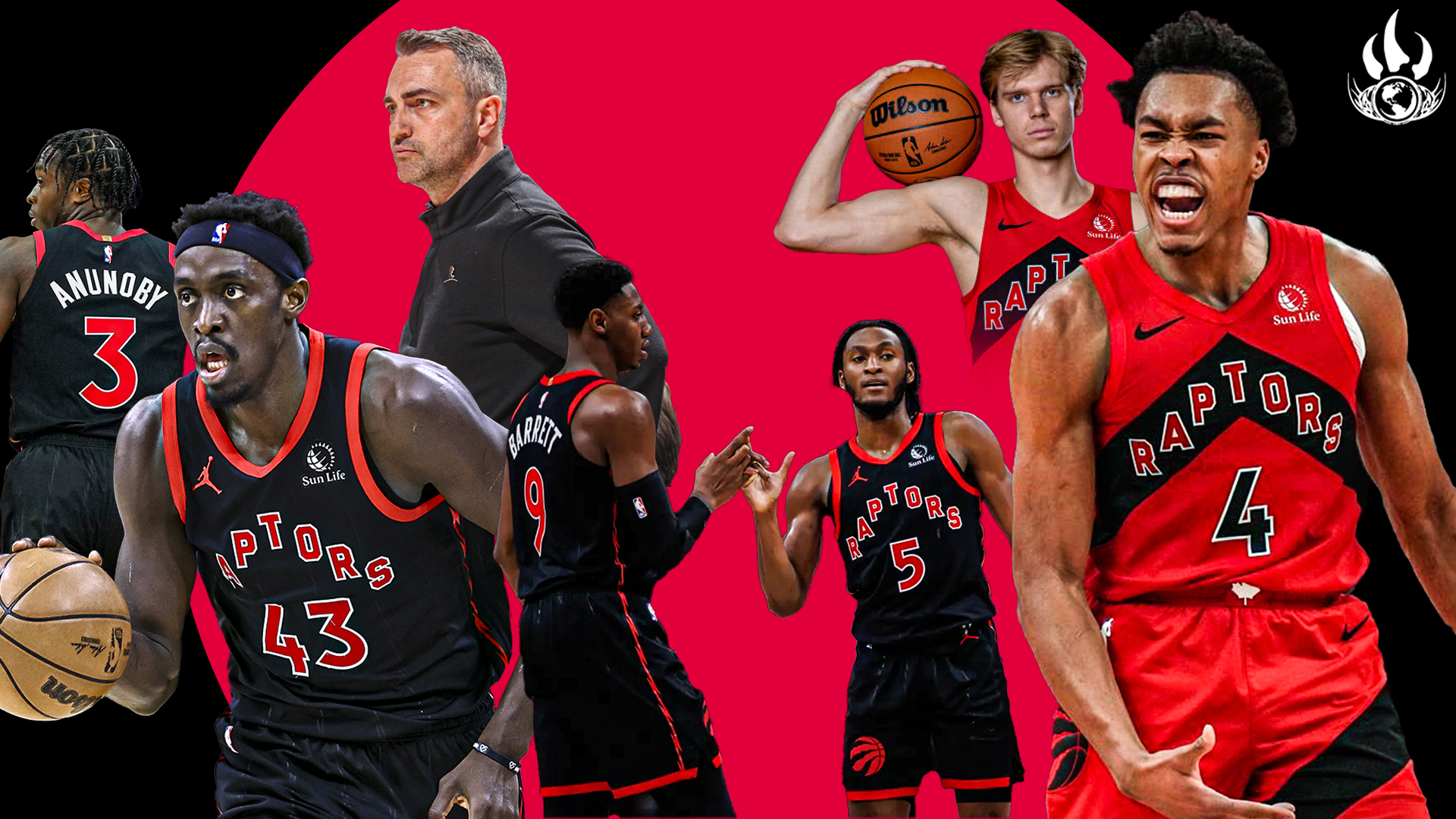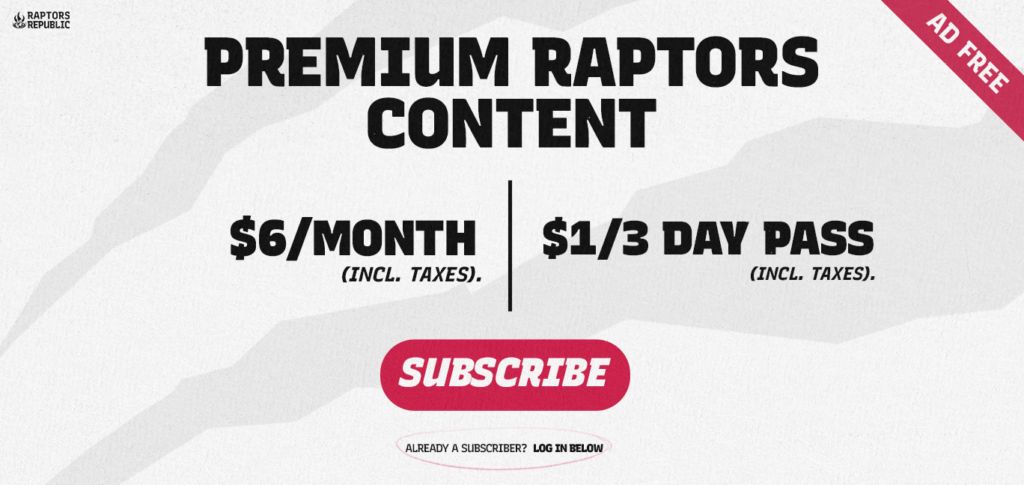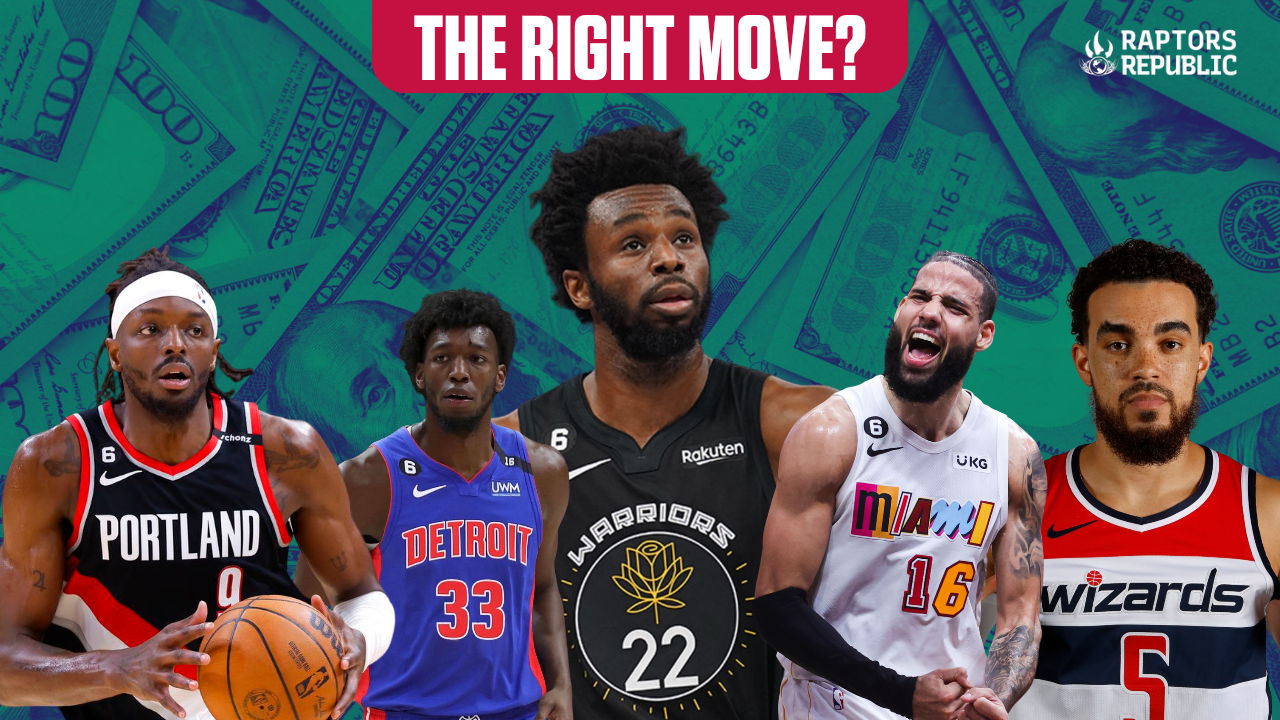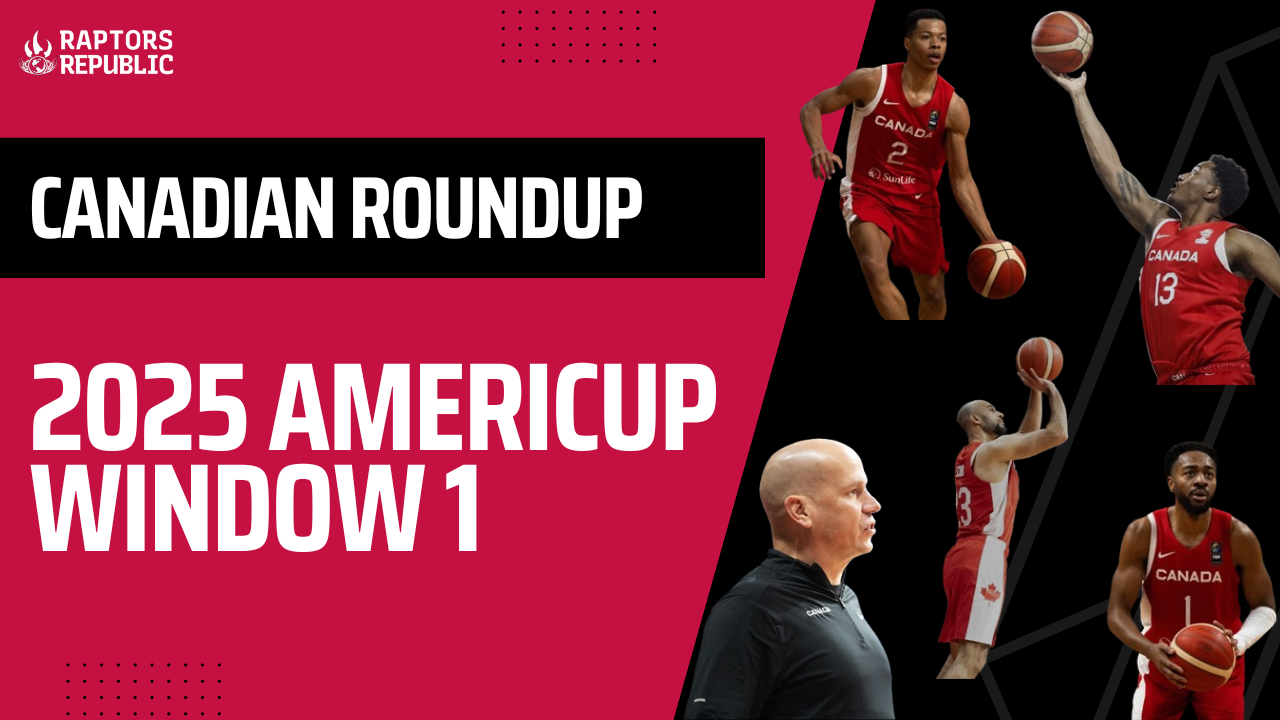It's a long offseason for teams that don't make the playoffs. There's watching and waiting and vacationing and training and ... that's pretty much it. Which gives us plenty of time to play guessing games.
So let's guess.
The Toronto Raptors fixed a number of their weaknesses this season. Coming into 2023-24, Toronto had too little shooting, too little driving, too little creation, and too little point-of-attack defense. (Among other things.)
When I wrote about what additions the Raptors could make last offseason, I pined desperately for Nickeil Alexander-Walker as the target of Toronto's midlevel exception. Turns out, yeah, that would have helped. Instead, Toronto's major addition was Jalen McDaniels. As for shooting, the Raptors came into the 2023-24 season with less than the year prior. Without solving its problems, the Raptors were clearly worse. So they had to nuke the roster. And! That clarified things.
While the Raptors didn't hit around the edges last offseason, they did (kind of) during the season. Particularly when trading OG Anunoby. I wrote this coming into the 2023-24 season:
To make trading one of Toronto’s core players realistic, the team would need to hit on a player who gets better in Toronto. Would New York go absolutely insane, black out, and trade Obi Toppin or Immanuel Quickley or Quentin Grimes?... wow Quickley and Grimes especially would solve things for Toronto
In hindsight, Quickley was clearly the best of the bunch, and Toronto managed to snare him. That's a big win. Not to mention the guy who came along in the deal. And with the additions of Quickley and RJ Barrett, Toronto took big strides towards building a roster that makes sense around Scottie Barnes. There's more shooting, more pace, more cutting, and more tempo in the offense. In fact, many of Toronto's offensive indicators from this past season were terrific: The Raptors ranked within the top 10 for passes per 100 possessions and within the top five for expected efficiency on shots, shortest time to first action, and percentage of possessions with a paint touch. That all translates to a high-tempo, high-octane offense. Modern stuff. It largely happened behind the incredible growth of Barnes, who is now a surefire star. The point of this article is not to rehash Barnes' season (that will come, to be sure), but rest assured he got better across the board. Which makes Toronto's team-building project easier.
So despite what was, in many ways, a frustrating and lost season, the Raptors' long-term trajectory is still relatively on track. Perhaps the most important component of Toronto's long-term health is this number: In 400 minutes with all three of Barnes, Barrett, and Quickley on the court, Toronto had a net rating of plus-3.3. In 200 minutes with Poeltl as well, it was plus-11.5. That's a foundation, even given the small-minute totals. Any improvement, or addition, or adaptation, must be made with that foursome in mind.
So now what do the Raptors need now?
Maybe the simplest need, but a crucial one, is to retain Quickley. He is a restricted free agent, meaning Toronto can keep him if it so desires. Signing him at a reasonable number less than the max -- perhaps $20-$25 million per year, or so -- would be a big win for Toronto.
Beyond that obvious need, while Toronto added some shooting to the roster, it still desperately needs more. Quickley is an exceptional shooter and very capable of being even a good team's best marksman. Barrett has been very good in Toronto and middling for the remainder of his career, so it will be important that he stays at his high level. He was particularly exceptional in the corners. Barnes was improved for much of the year, though that tailed off towards the end of his season. And Poeltl is a devastating finisher, though he is a non-shooter. That's not quite enough 3-point firepower in a starting lineup. The Raptors will need a starting shooting guard or small forward who can drain triples at a high frequency, whether off the catch or the bounce. Perhaps Gradey Dick steps in there (although that would introduce defensive weaknesses).
Of course, shooting is far from the only thing Toronto lacks. Perhaps even more integrally, the Raptors need initiation. They need players capable of creating advantages from a standstill, in multiple play options, who can pull up or drive, who can finish, and who can create for others at the same time. Quickley is improving there, but he's not a strong starting point guard in that respect.
Toronto has been at its best with the ball in Barnes' hands, and the Barnes-Quickley screening action has been far more devastating than the Quickley-Barnes version. That makes sense, as Quickley needs a smashing, mashing big to create space for him (a la Hartenstein). And Toronto has a player like that in Poeltl. But finding other effective initiating combos is crucial.




